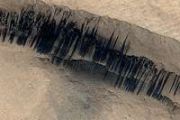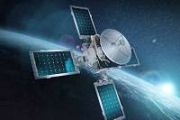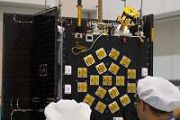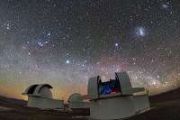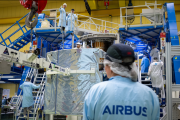
Copernical Team
"Man in the Moon" gets his clock reset by 200 million years
 Scientists have 'reset the clock' for craters on the Moon, meaning that parts of its surface - which characterise the children's story of the Man in the Moon - are around 200 million years older than had been thought.
Researchers from Norway and France have found a way of coordinating and recalibrating two conflicting systems of dating the surface of the Moon. This new evaluation shows tha
Scientists have 'reset the clock' for craters on the Moon, meaning that parts of its surface - which characterise the children's story of the Man in the Moon - are around 200 million years older than had been thought.
Researchers from Norway and France have found a way of coordinating and recalibrating two conflicting systems of dating the surface of the Moon. This new evaluation shows tha SwRI delivers plasma spectrometer for Moon mission
 Southwest Research Institute has delivered a plasma spectrometer for integration into a lunar lander as part of NASA's Lunar Vertex investigation, scheduled to commence next year. The target site is the Reiner Gamma region on the Moon's nearside, a mysterious area known to have a local magnetic field. The SwRI-developed Magnetic Anomaly Plasma Spectrometer (MAPS) will study the interaction of th
Southwest Research Institute has delivered a plasma spectrometer for integration into a lunar lander as part of NASA's Lunar Vertex investigation, scheduled to commence next year. The target site is the Reiner Gamma region on the Moon's nearside, a mysterious area known to have a local magnetic field. The SwRI-developed Magnetic Anomaly Plasma Spectrometer (MAPS) will study the interaction of th NASA expands options for spacewalking, moonwalking suits, services
 NASA has awarded Axiom Space and Collins Aerospace task orders under existing contracts to advance spacewalking capabilities in low Earth orbit, as well as moonwalking services for Artemis missions.
The latest Exploration Extravehicular Activity Services task orders, each with a value of $5 million, are intended to have Axiom Space begin work on a spacesuit for use in low Earth orbit, and
NASA has awarded Axiom Space and Collins Aerospace task orders under existing contracts to advance spacewalking capabilities in low Earth orbit, as well as moonwalking services for Artemis missions.
The latest Exploration Extravehicular Activity Services task orders, each with a value of $5 million, are intended to have Axiom Space begin work on a spacesuit for use in low Earth orbit, and Bursting the Bubble with Inflatable Habitats
 Following a successful inflatable habitat burst test in December 2022, Lockheed Martin conducted another subscale burst test on June 14 in Colorado-and like the first time, it went off with a bang!
Performed on an historic Titan rocket hot-fire test stand, the test achieved validation by getting to 253 psi (nearly six times the max operating pressure), hitting the prediction and showing co
Following a successful inflatable habitat burst test in December 2022, Lockheed Martin conducted another subscale burst test on June 14 in Colorado-and like the first time, it went off with a bang!
Performed on an historic Titan rocket hot-fire test stand, the test achieved validation by getting to 253 psi (nearly six times the max operating pressure), hitting the prediction and showing co China Aerospace Foundation and Asia-Pacific Space Cooperation Organization Sign Cooperation MOU
 The China Aerospace Foundation and the Asia-Pacific Space Cooperation Organization have solidified their commitment to collaboration by signing a memorandum of understanding (MOU) at the headquarters of the Asia-Pacific Space Cooperation Organization. The event saw the presence of esteemed leaders such as Li Guoping, Chief Engineer of China National Space Administration, Wu Zhijian, Chairman of
The China Aerospace Foundation and the Asia-Pacific Space Cooperation Organization have solidified their commitment to collaboration by signing a memorandum of understanding (MOU) at the headquarters of the Asia-Pacific Space Cooperation Organization. The event saw the presence of esteemed leaders such as Li Guoping, Chief Engineer of China National Space Administration, Wu Zhijian, Chairman of Axiom Space Awarded Contract to Pursue Spacesuit Development for International Space Station
 Axiom Space, a Houston-based company, has been granted a significant contract by NASA to develop spacesuits for the International Space Station (ISS). The contract, which involves an initial commitment of $5 million and has the potential to reach $142 million over four years, aims to modify Axiom's Artemis III lunar spacesuit design to enhance NASA's spacewalking capabilities on the ISS.
T
Axiom Space, a Houston-based company, has been granted a significant contract by NASA to develop spacesuits for the International Space Station (ISS). The contract, which involves an initial commitment of $5 million and has the potential to reach $142 million over four years, aims to modify Axiom's Artemis III lunar spacesuit design to enhance NASA's spacewalking capabilities on the ISS.
T Hughes Partners with Netskope to Launch Managed SASE Solution for Small to Medium Enterprises
 Hughes Network Systems, LLC (HUGHES), in collaboration with Netskope, a leading Security Access Service Edge (SASE) provider, has unveiled a groundbreaking Managed SASE solution for small to medium enterprises (SMEs). This joint effort aims to combine Hughes' expertise in managed services with Netskope's cutting-edge Security Service Edge (SSE) capabilities, offering Hughes customers an innovati
Hughes Network Systems, LLC (HUGHES), in collaboration with Netskope, a leading Security Access Service Edge (SASE) provider, has unveiled a groundbreaking Managed SASE solution for small to medium enterprises (SMEs). This joint effort aims to combine Hughes' expertise in managed services with Netskope's cutting-edge Security Service Edge (SSE) capabilities, offering Hughes customers an innovati High-Velocity Impacts Explored in Experimental Study
 Scientists from Johns Hopkins University have conducted a groundbreaking experimental study to unravel the mysteries behind impact flashes generated by high-velocity impacts. With debris and meteoroids posing a significant threat to satellites, space probes, and hypersonic craft, understanding the nature and characteristics of these impact flashes is crucial for ensuring the safety and durabilit
Scientists from Johns Hopkins University have conducted a groundbreaking experimental study to unravel the mysteries behind impact flashes generated by high-velocity impacts. With debris and meteoroids posing a significant threat to satellites, space probes, and hypersonic craft, understanding the nature and characteristics of these impact flashes is crucial for ensuring the safety and durabilit NASA's Starling Mission Sending Swarm of Satellites into Orbit
 This July, NASA is sending a team of four six-unit (6U)-sized CubeSats into orbit around Earth to see if they're able to cooperate on their own, without real-time updates from mission control. While that kind of autonomous cooperation may not sound too difficult for humans, this team will be robotic - composed of small satellites to test out key technologies for the future of deep space missions
This July, NASA is sending a team of four six-unit (6U)-sized CubeSats into orbit around Earth to see if they're able to cooperate on their own, without real-time updates from mission control. While that kind of autonomous cooperation may not sound too difficult for humans, this team will be robotic - composed of small satellites to test out key technologies for the future of deep space missions Follow Euclid's first months in space
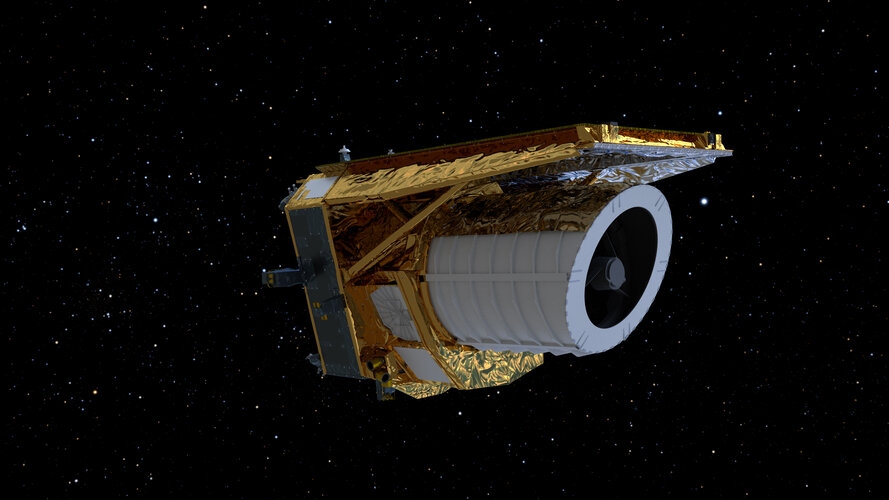
Follow Euclid on its journey to Lagrange point L2 and find out how mission controllers at ESOC in Darmstadt are proceeding with turning on, checking and calibrating the spacecraft’s equipment, the telescope and scientific instruments, as they prepare for routine science observations.















